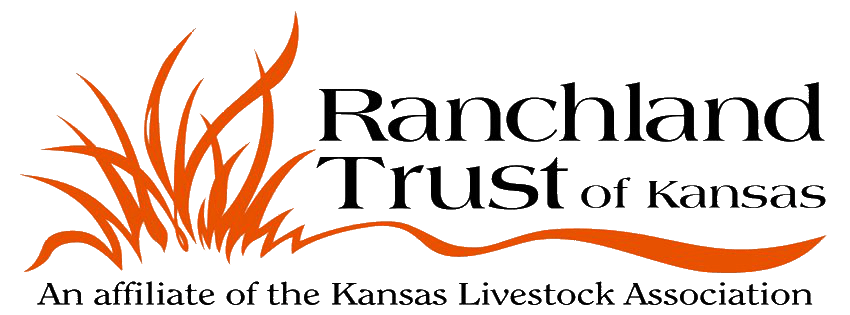VOLUNTARY CONSERVATION EASEMENT TO PROTECT NATIVE GRASSLAND IN CENTRAL KANSAS
The Ranchland Trust of Kansas (RTK) recently completed the purchase of a voluntary conservation easement from Chester Peterson Jr. that will ensure his land will be available for agricultural production in perpetuity. Peterson of Lindsborg, KS, has granted a conservation easement to protect ranchland in Saline and Ellsworth counties.
RTK is an agricultural land trust affiliate of the Kansas Livestock Association, with a mission to preserve Kansas’ ranching heritage and open spaces for future generations through the conservation of working landscapes.
“My reason to pursue a conservation easement was to preserve the land in its natural state for generations to come,” Peterson says. “My people have loved the land and I want to continue that.”
The conservation easement consists of expansive native grasslands with rolling topography and excellent viewsheds. The easement, made up of two parcels of land, has historical significance to the Smoky Hills region. A parcel near the Elkhorn Creek Valley in Ellsworth County was considered sacred hunting ground by Native Americans. The second parcel, located in Saline County, flanks Coronado Heights, a butte considered by historians to be the northernmost extent of the Spanish explorer Coronado in 1541. Greater prairie-chicken, bobwhite quail and other grassland birds are abundant in the area. The conservation easement ensures that the land will be protected from subdivision and commercial and residential development.
“Mr. Peterson and his father have had a lifelong commitment to conservation. His father was the first to construct terraces in Saline County and the first chairman of Saline County Soil Conservation District for 20 years. Today, the family is one of the first to adopt a conservation easement to keep their farm and ranch together in agricultural production for future generations,” says Stephanie Manes, RTK Smoky Hills Coordinator. “To think that because of this commitment, people will always be able to drive to the top of Coronado Heights and see forever the Kansas prairie much like Coronado saw it in 1541 is very moving. What a wonderful legacy to leave.”
Peterson donated a portion of the appraised value of the development rights for the farmland, but the remainder was purchased with funds from USDA’s Natural Resources Conservation Service Farm and Ranch Land Protection Program (FRPP) and RTK’s partner, EDP Renewables North America (EDPR). EDPR’s involvement is related to its commitment to voluntarily offset any potential impacts to grassland and wildlife on behalf of its Meridian Way Wind Farm in Cloud County. This partnership is the first of its kind in the nation.
A 2003 study commissioned by EDPR suggested there could be possible negative impacts to declining grassland species such as greater prairie-chickens from the habitat fragmentation caused by roads, power lines and wind turbines to be constructed near Concordia. This led to a 2008 conservation partnership between RTK, EDPR and The Nature Conservancy (TNC) in Kansas, with the objective of mitigating such potential impacts. RTK is responsible for purchasing and holding conservation easements on at least 13,100 acres of native rangeland and coordinating habitat improvement on 20,100 acres. This is the fifth conservation easement RTK holds.
“We appreciate all the efforts by RTK, The Nature Conservancy, and the Peterson family, to complete the purchase of this conservation easement,” says Christina Calabrese, EDPR Environmental Manager. “This conservation easement brings all of us closer to achieving the goals of this conservation project.”
A conservation easement is a voluntary legal agreement, between a landowner and a land trust, which limits certain types of commercial, residential and industrial development to private property. The agreement will stay with the land, regardless of any ownership changes, providing permanent protection of the property’s conservation value. Because of the long-term public benefits of conservation easements, such as agricultural production, open space, wildlife habitat, and air and water quality, USDA often provides matching funds for conservation easements, and the Internal Revenue Service offers tax incentives for full or partial conservation easement donations, especially for farmers and ranchers.
Peterson suggests to other farmers and ranchers to certainly consider a conservation easement. “I would encourage them to talk with their family and children, get a good lawyer and take it from there,” he says.
Landowners who would like more information about conservation easements in Kansas are encouraged to contact RTK at (785) 273-5115 or visit ranchlandtrustofkansas.org.

